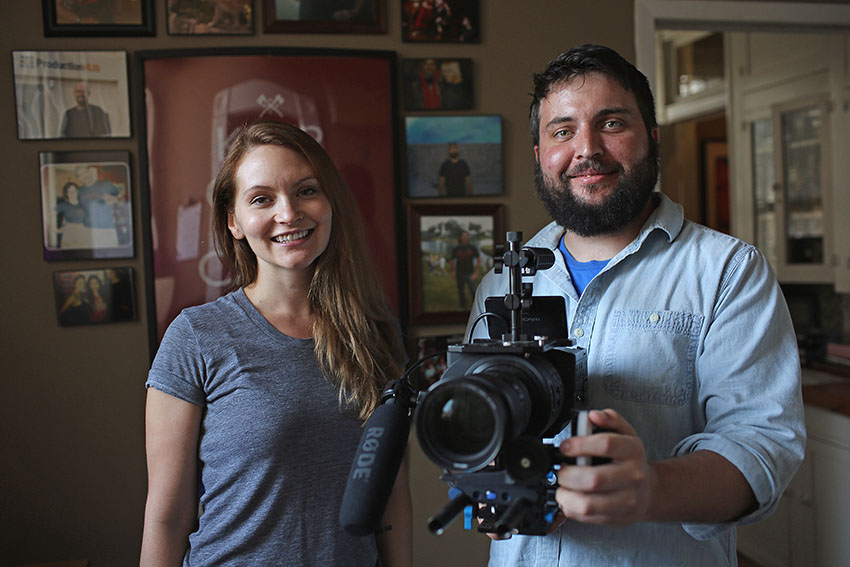The voices of the rare Texas-German dialect are singing their swan song, but documentarian Chase Honaker is on a mission to capture their final notes on film.
It all started with five grueling days of interviews, filming and editing as part of the 2014 Fusion Documentary Challenge. The end result was “All Gut Things,” a six-minute documentary about the dying German dialect.
Now, Honaker and producer Ashley James are developing “All Gut Things” into a feature-length project. With over 50 percent of their filming complete, they hope the crowd-funding campaign they’ll launch this Thursday at the German Free School will provide them with the funding to complete filming and move them into post-production.
The documentary, which they plan to complete by April of 2017, focuses on the work of the Texas German Dialect Project. The TGDP, run by Germanic studies professor Hans Boas, has been documenting the language since the organization’s founding in 2001. Honaker and James have been following this group and filming interviews with native speakers to document the language before it dies out.
“I always knew there was this German population in Texas, but I didn’t realize there was this language and culture that was even more underground,” Honaker said. “That this culture still exists but the language is going extinct is what interested me even more. Our question is: if the language goes extinct, what else goes along with it?”
According to linguistics professor James Slotta, Texas-German is unusual because heritage languages normally die out by the third generation of migrants. Despite the language’s comparative longevity, it wasn’t able to withstand lingering prejudices following the World Wars.
Anti-German sentiments following these wars led to a sharp decline in teaching the language. Native speakers consciously, or sometimes unconsciously, stopped transmitting the language to their children. Baby boomers might know a little bit of the language, but don’t speak it fluently. Texas-German never recovered from this loss. By 1950, the number of new speakers of the language was virtually zero.
Texas-German, projected to be extinct by the year 2040, is only one of the world’s 7,000 languages, half of which are expected to be extinct by the end of the 21st century.
For Diane Moltz, one of the native speakers interviewed as part of the TGDP, the Texas-German culture and language remain a large part of her life. She and her husband grew up speaking the language in and around New Braunfels, and today, they continue to participate in a range of cultural activities, from singing in a German choir to participating as officers in a polka dance club.
Although the Moltzs’ children share in their community involvement, none of them speak more than a few scattered phrases in Texas-German.
“Our children have all said to us, ‘Why didn’t you teach us German?’” said Moltz. “If I had it to do over again I would. But when I was a young person that wasn’t very important to me.”
Moltz, born in 1940, is a member of the aging population of remaining Texas-German speakers. Slotta said that once the oldest generation of a community constitutes its only speakers, a language has reached a stage where chances of recovery are slim.
Each summer, Moltz and her sister teach a German language summer camp to a group of 30 children with diverse cultural backgrounds. According to James, efforts such as this aren’t likely to bring back any revival of the language. The resources necessary to do so would be extraordinary.
“We’re working so hard to archive and preserve it because it really doesn’t look like there’s going be any sort of comeback,” said James.
Honaker believes that TGDP is important because of the deep influence made by the wave of German immigrants that migrated to Texas in the early 1830s.
“So many things that we consider ‘Texan’ came about because of when the Germans that migrated here,” said Honaker. “Dying languages are a really interesting phenomenon that we need to document because their impact on our own culture could be huge.”















